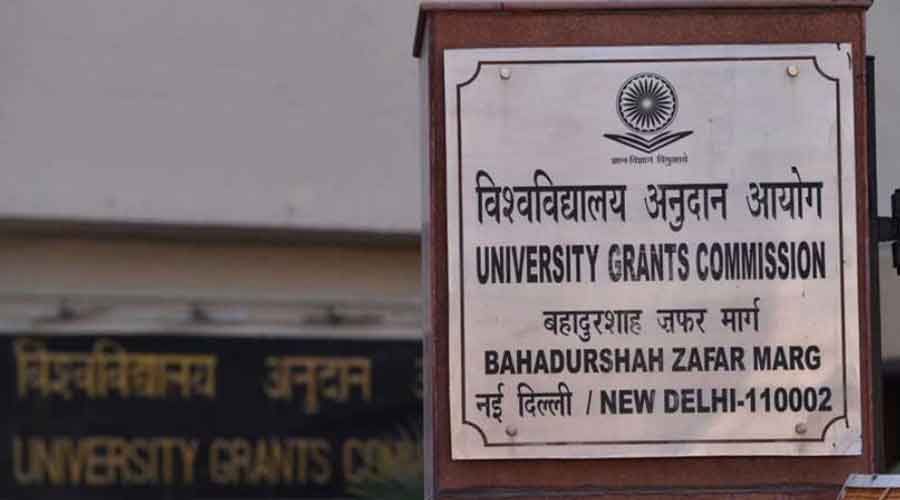The University Grants Commission has allowed Indian universities to collaborate with foreign institutions that are not accredited in their home countries and offer joint and dual degree courses, a move some academics fear would lead to profiteering at the expense of quality.
The higher education regulator has notified the UGC (Academic Collaboration between Indian and Foreign Higher Educational Institutions to offer Twinning, Joint Degree and Dual Degree Programmes) Regulations, 2022, replacing earlier regulations of 2016.
The earlier regulations allowed collaborations only between Indian institutions with an accreditation grade of “A” or above (or their equivalent) and foreign institutions accredited in their home countries. (Accreditation abroad usually doesn’t involve the grant of grades or scores.)
In contrast, the current regulations allow Indian institutions accredited with a score of 3.01 out of four (equivalent to Grade A) or above — and those in the top 100 in the National Institutional Ranking Framework (most of which have “A” grades) — to collaborate with foreign institutions that are among the top 1,000 in global rankings by the UK’s Times Higher Education (THE) or QS.
Several academics said the bottom half of these international rankings tend to feature many unaccredited institutions of questionable quality. They feared the new regulations would encourage private Indian universities to lure students, against high fees, by dangling their collaboration with dubious foreign universities.
Such apprehensions are strengthened by another change: while the old regulations allowed only joint degrees, the new regulations allow both joint and dual degrees.
A joint degree involves a single degree document, issued by the Indian institution but mentioning that the degree is being awarded by both collaborating varsities. A dual degree involves two degree documents, one from each institution — a feature that could be more alluring for students.
(Under both the old and new regulations, Indian students have to complete at least 30 per cent of their course at the collaborating foreign university.)
The new regulations have also waived the requirement for the Indian institution to secure the UGC’s approval before entering into any collaboration agreement with a foreign varsity.
A former IIT director said the premier tech institutions have had doubts about the ranking procedure of the international agencies because they give a sizeable weightage to “peer perception”.
Both the THE and QS give about 30 per cent weightage to peer perception, without spelling out who the peers are, what they were asked and what their answers were.
“Peer perception is a black hole. It’s purely subjective. The ranking agencies are business entities. They should be more transparent about this criterion of peer perception,” the IIT director said.
Sources said many Indian institutions of suspect quality have made it to the global 1,000 rankings. The top seven IITs have been boycotting the THE rankings since 2020.
India’s National Institutional Ranking Framework gives 5 per cent weightage to “peer rating”.
The new regulations mean the Association of Indian Universities (AIU), which grants equivalence to degrees granted by foreign universities, might have to drop the requirement of accreditation for the foreign institutions.
“I don’t think global rankings by the Times Higher Education or QS are more reliable (as an indicator of quality) than accreditation by an appropriate agency in the home country,” educationist Furqan Qamar, former vice-chancellor of the Central University of Himachal Pradesh and former AIU secretary-general, said.
“A requirement that the foreign institutions are accredited in their own countries and figure among the top 500 in world rankings would have ensured collaborations with higher-quality institutions.”
He added: “There is no evidence that the degree courses at unaccredited foreign institutions have as much academic rigour as those at accredited institutions in India.”
An email sent to UGC chairperson M. Jagadesh Kumar on Friday seeking the reasons for waiving the requirement of accreditation for the collaborating foreign institutions has brought no response till Saturday evening.











